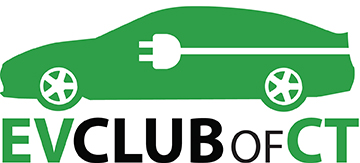Impact on EV Incentives
- The House passed the Senate version of the bill. Had they not done so, there would have had to have been a negotiation to reconcile them which could have been protracted.
- All EV incentives sunset on September 30th. This is 3 months earlier than what was in the earlier House-passed version. This includes:
- $7500 incentive to purchase or lease a new vehicle.
- $4000 to purchase a used vehicle.
- Commercial purchases, including of heavy-duty clean vehicles.
- Incentive for installing charging infrastructure (separate from NEVI, which is currently in litigation).
- Buyers must have a signed contract and make a down payment or trade-in commitment by 9/30 to take advantage of the incentive before it expires. Vehicle delivery can occur after 9/30. This represents a slight loosening of the requirements and is based on an IRS update issued on 8/21. Originally, it was required that delivery occur before 9/30. There are reports that EV sales have been brisk since the bill was passed in July, so this represents a small ray of light in a dark world.
- Battery manufacturing incentives remain in force and have a more gradual phase-out. This has led some projects, such as the Ford LFP battery plant in Michigan, to proceed. It remains to be seen if sustainable levels of production can be maintained without the demand side incentives. Also, the foreign entity of concern is being made more stringent. It also sounds like it is written in such a way that it is unworkable, which may be by design.
- The EV registration tax is not included in the bill. The Senate dropped it, reportedly due to implementation difficulties.
- The Senate Parliamentarian nixed undoing the federal fuel economy standards as part of the bill. But don’t worry, the EPA is on the case – it will just take longer. Anyway, it doesn’t matter because…
- The penalties for not being in compliance with emissions standards are gone. With no enforcement, the standards themselves become beside the point. The bill set the civil non-compliance penalty to a maximum of $0.
- The only thing that arguably is a benefit is the ability to deduct interest on auto loans. This is for new vehicles only (gas and electric) and there are income caps. Many lower income consumers buy used vehicles or lease them, and will therefore not benefit. Even for those who qualify, in the case of EVs, the savings are minimal compared to the loss of the tax credit.
State of CT EV purchase and charging incentives are not affected.
As we have been saying ever since the election, now is a good time to buy an EV. Aside from the tax credit, there are a number of good deals. We have seen recent announcements from Hyundai/Kia, Tesla, and Honda. These come and go, as sellers frequently adjust their pricing based on inventory or other factors (e.g. tariffs), so check first.
The loss of the incentive affects qualifying EVs most directly. However, many EVs that are not incentive-eligible have been offering discounts to remain competitive.
The list of qualifying EVs is still fairly small. It was expected to take some time to ramp compliant mineral sourcing and manufacturing to meet the requirements. These are the currently qualifying vehicles:
- Acura ZDX
- Cadillac Lyric
- Cadillac Optiq
- Cadillac Vistiq
- Chevrolet Blazer
- Chevrolet Equinox
- Chevrolet Silverado
- Ford F-150 Lightning
- Genesis Electric GV 70
- GMC Sierra EV
- Honda Prologue
- Hyundai Ioniq 5
- Hyundai Ioniq 9
- Jeep Wagoneer S
- Kia EV6
- Kia EV9
- Tesla Model 3
- Tesla Model Y
- Tesla Model X
- Tesla Cybertruck
There are price caps of $55,000 for a sedan and $80,000 for an SUV or truck. Not all trim levels of these vehicles will qualify.
There are some zero-emission energy tax credits that were not nuked by this bill (including nuclear). Wind and solar were hit the hardest. But even for the surviving credits, there are new foreign entity of concern rules, which are so confusingly written that it remains to be seen if they are even workable.
Even though the bill makes some modest (and often cruel) nods to cost reduction, it includes additional tax breaks and lower leasing royalty payments for oil, gas and coal producers. This is on top of the already favorable treatment the fossil industry enjoys.
This is a quote from Ford CEO, Jim Farley, as reported in The NY Times:
“We are in a global competition with China, and it’s not just E.V.s,” said Ford CEO Jim Farley. “And if we lose this we do not have a future at Ford.” He said this, and a lot more, at the Aspen Ideas Festival.

